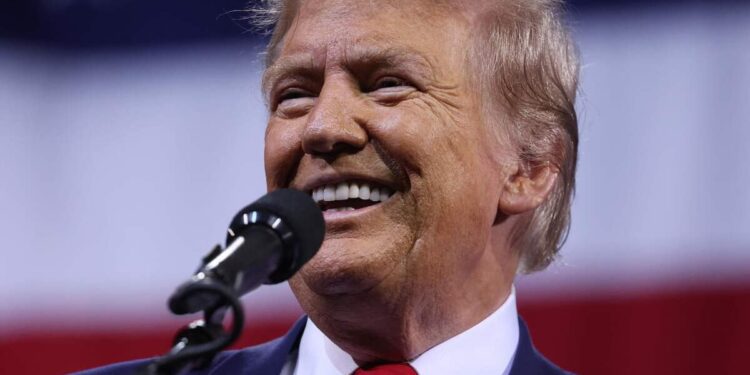The dismissal of minor charges in Donald Trump’s trial in Georgia only confirms the obvious: in just a few months, the grip on criminal proceedings surrounding the former American president has loosened spectacularly, particularly after the intervention of the Supreme Court.
• Also read: Here’s Why Doing Well in a Presidential Debate Doesn’t Necessarily Mean Victory
• Also read: Georgia dismisses two more Trump charges in attempt to overturn election results
• Also read: Donald Trump refuses to participate in a second debate with Kamala Harris
So much so that the subject was barely mentioned during the debate on Tuesday between the vice-president and Democratic candidate for the November 5 election, Kamala Harris, and her Republican opponent, who is nevertheless the first former American president to suffer the setback of a trial and then a criminal conviction, in New York.
But the judge in the trial last week postponed sentencing from September 18 to November 26, three weeks after the election, in the name of “the interests of justice.”
And the judge in the trial of Donald Trump and his 14 co-defendants in Georgia (southeast) for illegal attempts to reverse the results of the 2020 presidential election in this state on Thursday canceled three minor charges, including two targeting the former president, on the grounds that the facts in question fell within the scope of federal justice.
Here’s an update on Donald Trump’s criminal legal troubles.
2020 presidential election, at the federal level
It was in his case before the federal court for illegal attempts to reverse the results of the 2020 election won by Joe Biden, instructed by special prosecutor Jack Smith, that Donald Trump appealed to the Supreme Court.
Prosecuted in particular for “conspiracy against American institutions” and “violating the right to vote” of voters, he faces decades in prison.
In an unprecedented decision on July 1, the Court partially granted him satisfaction by recognizing broad criminal immunity for the President of the United States.
Judge Tanya Chutkan noted last week that it was not possible to set a new date at this stage for the trial, which was originally scheduled to begin in Washington on March 4, 2024.
The coming months will therefore be devoted to battles of written arguments between the prosecution and the defense, in particular on the consequences of the Supreme Court’s ruling.
2020 Presidential Election in Georgia
In Georgia, Donald Trump is being prosecuted along with 14 other people for similar charges to those in his trial in Washington, under that state’s law on organized crime.
The investigation was sparked by a January 2021 phone call from the outgoing president asking a senior Georgia official to “find” the nearly 12,000 ballots in his name that he needed to win the key state.
Judge Scott McAfee said Thursday that the Supreme Court’s decision would “likely have consequences” on the facts of the main charge, but that he would wait to draw conclusions until both sides have presented their arguments.
The proceedings are in any case on hold until at least next year, as the state appeals court is considering a request by the defendants to remove the prosecutor from the case.
Retention of classified documents
In this other federal case, also investigated by Jack Smith, Donald Trump is being prosecuted along with two of his assistants for having taken classified documents to his private residence in Mar-a-Lago, in Florida (southeast).
He is accused of compromising national security by retaining documents, including military plans and information on nuclear weapons, after his term, instead of handing them over to the National Archives as required by law.
Judge Aileen Cannon, who had already postponed indefinitely the trial initially scheduled for May 20, granted the former president a total victory on July 15 by canceling the procedure, considering that the appointment of the special prosecutor was unconstitutional.
Smith filed a lawsuit in a federal appeals court in late August seeking to overturn the decision. The appeals process is expected to last months.
Stormy Daniels Case
This is the only criminal trial of Donald Trump that will ultimately be held before the vote.
He was found guilty on May 30 in New York of “aggravated false accounting to conceal a conspiracy to subvert the 2016 election.” Facing up to four years in prison, Donald Trump will be sentenced on November 26.
The case centers on the payment of $130,000, disguised as legal fees, to porn star Stormy Daniels to keep quiet about a sexual relationship in 2006 that Donald Trump denies.



